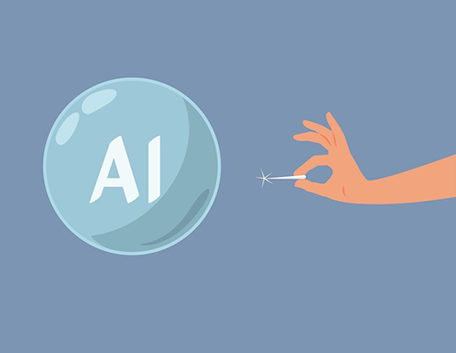The conversation about artificial intelligence often triggers anxiety. However, the recent blog article "Why Product Management Is More Critical—Not Less—in the Age of AI" highlights a critical perspective: AI is designed to enhance the effectiveness of product managers, not replace them. AI lacks the soft skills needed to build alignment and trust, strategic judgement, and influence, which are essential for leading a product to success. On the other hand, AI can exponentially improve the output and quality of your work.
Many product managers wonder, "Will AI take my job?" However, the reality is much more empowering and rewarding if they do not view AI as a tool to simplify and automate. AI can instead boost your growth and career opportunities if you use it both strategically and tactically to your advantage. Mastering AI is not about replacing people; it's about significantly enhancing the ability to solve customer problems, deliver results, innovate, and lead. If you are excited about the future, and looking for ways to grow, please read on!
AI proficiency is the new “standard”; it's not just about making things easier but about making them exponentially better, which is where value is added. AI is a force multiplier. It enables individuals and teams to achieve more, faster and with greater precision. AI will not replace your job, but it will set the bar and expectations higher because it should make you more productive with the same time and effort.
AI can be leveraged on multiple levels, from highly strategic to tactical activities – such as using AI to serve customers better and solve their problems.
Utilize AI to enhance customer support, expedite time-to-value, optimize costs, or analyze and process customer feedback. AI can transform internal operations. It can automate repetitive support tasks, prioritize tickets based on urgency, and analyze customer feedback to identify urgent issues. Additionally, AI can perform sentiment analysis and scenario analysis, helping to pinpoint areas for product improvements and fostering continuous innovation by consolidating and analyzing feedback from various sources.
Competitive Market Analysis and Market Monitoring. AI enables you to analyze more data than ever before, from competitor websites to news, social media, and annual reports. This continuous, automated monitoring helps identify trends, regulatory changes, and threats early, enabling proactive decision making.
Dynamic Pricing Optimization. AI can help you analyze real-time market data, customer behavior, and global events to recommend optimal pricing strategies.
Roadmap Prioritization. AI can aggregate data from support tickets, feature requests, and usage analytics, and then compare it against market trends, competition, and other relevant factors. This creates a more objective, data-driven roadmap that reflects both customer demand and strategic opportunity.
Using AI to draft and refine product requirements: AI can generate an initial version of requirements, test cases, and acceptance criteria. Inputs for this process may include customer feedback, interviews, product gap analysis, questions from RFPs and RFQs, competitive analysis, data from internal systems, etc.
Market Monitoring. AI can help you to continuously scan for regulatory changes, competitor announcements, and emerging trends, sending timely alerts so teams can pivot quickly.
Customer Segmentation. AI can help you analyze behavioral data at scale, uncovering micro-segments that would otherwise remain invisible.
Competitor Feature Benchmarking. AI can help you automatically compare your product's features, user flows, and onboarding experiences with those of competitors, highlighting gaps and opportunities for innovation.
Prototyping, ideation, and mockups. AI can help you with quick prototyping, creating visuals for presentations and customer communications, wireframes, concepts, etc.
Day to day mundane tasks. AI can help you enhance your email communications, product release announcements, and more.
Conclusion
In conclusion, embracing AI proficiency is not just a strategic move, it's a necessity for staying relevant in today's fast-paced world. By harnessing the power of AI, you can unlock new insights, enhance decision-making, and deliver innovative products that stand out. Rather than fearing replacement, we should focus on becoming adept at using AI to elevate our capabilities. The future belongs to those who are curious and willing to invest in their skills, leveraging AI for personal and professional growth.
About the Author:
Juan Illidge is the Director of Volunteer Staffing at the Boston Product Management Association. Juan has forged demonstrable product success for startups to large multinationals across multiple industries like lead intelligence, sales engagement, data, identity access management, legal tech, and telecom. His product experience expands Latin America, Europe, Asia, and the North American markets.







